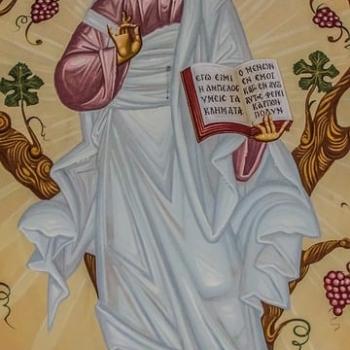
One need not spend time studying Catholicism before coming across the word mystery. Within theology, a mystery is a truth revealed by God that cannot be rationally conceived. Said differently, it is knowledge that human beings could not obtain without it being revealed by God.
One such mystery is the Holy Trinity. In this paper, I will endeavor to shed light on the life of the Trinity by discussing procession and spiration. I will conclude by examining what is known as appropriation.
Procession And Spiration
God is that being that exists necessarily. As such, His nature is eternal. Furthermore, based on Revelation, Catholicism asserts that God is three persons: the Father, the Son, and the Holy Spirit. All three possess a Divine nature; thus, all three are God, yet there is only one God.
In order to understand how this can be, we must distinguish between a nature and a person. The nature of a being is what a thing is; a person is who a thing is. Therefore, when we speak of the Holy Trinity, we can say that the three persons (the who) are all one Divine nature (the what).
This solution to understanding the Trinity leads to another problem. If Jesus is the Son of God (John 16:28 et al.), and God is eternal (John 17:24), then how can God have a Son? Put differently, if Jesus has always existed, then how can He have a Father? In order to address this question, we must understand the concept of the Divine procession.
Divine procession refers to the origination of a Divine person through the communication of the Divine essence. Procession means the origin of one from another. A procession can be either external or internal. The distinction depends on whether the term of the procession goes outside the principle from which it proceeds or remains within it. Creatures are said to proceed from God by an external procession, but the Son and the Holy Spirit proceed by an immanent act of the Most Holy Trinity since they belong to the inner life of God.
Within the Trinity, there are two internal processions. The first is the begetting of the Son from the Father. The second procession, often called spiration, is the origination of the Holy Spirit from the Father and the Son.
Since God exists outside of time, it is inaccurate to suggest a temporal procession. That is to say that it is incorrect to say that the Father had to exist for a period of time before He had a Son. Rather, the Son is eternally generated from the Father, and the Father and the Son eternally spirate the Holy Spirit.
Again, it is necessary to distinguish between God’s nature and the Persons of God. It is the divine persons, not the divine nature, who are the subjects of the internal divine procession. Finally, Jesus proceeds by the generation of the intellect. The Holy Spirit, however, proceeds from the will or mutual love of the Father and the Son from a single principle through spiration.
Having now sought to explain the subject of Divine procession, I turn to the question of appropriation.
Appropriation
Even though the three persons of the Holy Trinity are God, theology distinguishes, however imperfectly, particular attributes and works of each of the persons of the Trinity. This assigning and distinguishing of attributes is called appropriation.
It is important to state that while certain qualities are prescribed to a particular person of the Trinity, it is not to the exclusion of the other members. Said differently, an attribute associated with one member of the Trinity does not mean that the other members do not also possess that particular attribute. However, in following Divine Revelation, Catholic theology specifies certain qualities to specific members of the Trinity.
To God the Father, attributes such as eternity, unity, omnipotence, and efficient causality, are suggested. Eternity is perhaps the most obvious attribute of God since He is the uncaused first cause of creation. Unity refers to the oneness of the Divine nature. It appears that a thing can be limited in one of two ways; by its nature and by extrinsic powers. Since it is God’s nature to exist and since there can be nothing that exists outside of God, the power of omnipotence is attributable to God the Father. Finally, efficient causality (the capacity to create) is appropriated to the Father.
Jesus, as the logos or reason of God, possesses qualities such as beauty, truth, wisdom, as well as the power of ordering the universe. As such, Jesus is understood to be the exemplary cause of creation. Beauty refers not to aesthetics but rather to that which reveals truth and goodness. As Jesus is the ultimate manifestation of God, beauty and truth are attributed to Him. The designation of Jesus as the logos refers to the reason or mind of God. As such, Jesus is seen as the ordering principle of creation.
Philosophically, the will is said to seek the good. Since the Holy Spirit proceeds from the will of God, qualities such as goodness, charity and its works, sanctification, and the conservation and perfecting of creation are attributed to Him. Of great importance to Catholics, it is the Holy Spirit that fortified the apostles at Pentecost – the birth of the Catholic Church – and it is the Holy Spirit that continues to inform and guide the Church to this day.
Conclusion
Many aspects of God are beyond the capacity of the human intellect to fully comprehend. Because of this fact, theology often speaks of mystery in discussing the Divine.
In this paper, I have endeavored to explore the mystery of the Holy Trinity by discussing the procession of Persons within the Trinity and by explaining the various qualities appropriated to each member.












